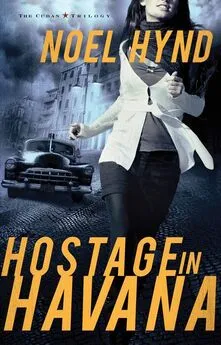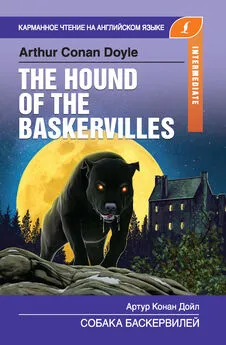Noel Hynd - Hostage in Havana
- Название:Hostage in Havana
- Автор:
- Жанр:
- Издательство:неизвестно
- Год:неизвестен
- ISBN:нет данных
- Рейтинг:
- Избранное:Добавить в избранное
-
Отзывы:
-
Ваша оценка:
Noel Hynd - Hostage in Havana краткое содержание
Hostage in Havana - читать онлайн бесплатно полную версию (весь текст целиком)
Интервал:
Закладка:
Defense of the socialist motherland is every Cuban’s greatest honor and highest duty, went the slogan. But a few brains would have been useful under the conditions Major Mejias had encountered today.
He sighed as he looked at his troops, who were just now realizing the severity of the firefight they’d been in. They were a mixed blessing, these kids. They respected authority and were affable. But they were rubes, most of them straight out of the sugar or tobacco fields. Well, so much the better for some of the things Mejias was trying to accomplish in some of Havana’s darker corners. They weren’t in any position to look over his shoulder and cause trouble and they could stop a bullet here or there to make his unit look good.
He walked the beach. He looked at the impressions in the sand where bullets had struck. For these smugglers, the living ones and dead one, whose bodies were laid out on the beach, he didn’t have much sympathy. But he would have to process them in a humane way, which was a nuisance.
The hothead who had started the shooting was dead. But the others were bandaged and being held by his young officers, who stood over the prisoners and held them at gunpoint. The surviving invaders were in shock and not inclined to run anywhere.
The major looked out at the water. A Cuban Navy patrol boat, which had arrived in the last few minutes, had seized the skiff and brought it to within fifty feet of shore. It bobbed gently in the waves now, looking innocent.
Mejias glared at it with anger. All the prisoners spoke Spanish, but Mejias had no doubt where they’d come from. Where do the invaders always come from? The north. Well, thanks to the heads-up ahead of time, he knew exactly where these men would land. That’s what had made the gunfire so unnecessary. Inside, his fury only deepened. He had rounded up his officers and had come all the way out from Havana to deal with this. And now it was royally loused up.
One of his sergeants walked over to him. Mejias had the reputation for a nastiness that is particular to small angry men in military hierarchies. They’re like steers that aspire to be bulls but lack the necessary equipment. Hence they feel they had to make up for it with attitude, and incidents like this one didn’t increase Mejias’ charm quotient.
The sergeant stood there, waiting to speak.
Mejias turned to him. “What is it, sergeant?” he asked.
“One of the prisoners says there was a female passenger, sir.”
Mejias looked surprised. “What?” he asked.
“A woman, sir.”
“One of their girlfriends?”
“No, sir. A passenger.”
“?Cubana? ?Norteamericana?” he asked.
“The skiff captain said she was probably American,” the young policeman said, “but she spoke good Spanish.”
Mejias looked away in disgust, then looked back.
“Well, then,” he said. “American. So we’ll have to find her, won’t we? Before anyone else does. Before she can cause trouble.” He motioned rudely to the water. “Or, if we’re very lucky, we’ll find the corpse.”
FORTY-TWO
From the stand of palm trees where she hid, Alex looked toward the area where Leo’s boat had come under attack. She could see the reflection of yellow and red lights flashing on the water, so she knew some activity was continuing. She thought back to the botched landing, the gunfire, the three-man crew, presumably now dead, and then to having no alternative but to dive into the water.
What stayed in her mind most, however, was the shot that Guarneri had sent in her direction. She knew he had not meant to harm her. It had been tough love in its most primitive form. He knew that if there was any specific target on the boat he was probably it. But if they were all to be riddled by bullets, he wanted to allow Alex the chance to survive. Hence, his shot had been meant to get her out of the boat.
It had worked. And it had probably saved her life. Yet there was still something about the man that didn’t add up.
She continued to lurk under the trees, surveying, catching her breath. Not a human was in sight, but she knew that would change quickly if anyone knew that a woman had bailed out of the boat. She needed to get as far away as she could, and as quickly as possible.
She walked up the beach, away from the water. There were not many footprints in the sand, but she carefully stepped in the prints that were there, lessening the chances of being followed. She came to a narrow road that followed the coast. She began to walk. She knew Havana was to the west, so she headed in that direction. Across the street was what appeared to be a small farm. No house in sight, just some scraggly fields and, beyond that, what appeared to be an orchard. She reached for her water bottle. It was sealed. Right now it was her lifeline. Her mouth was parched, so she drank only a third of it, nursing the water.
Then she heard the sound of motors approaching.
On the beach was a small boat, overturned and lying flat, a skiff maybe a dozen feet long. She hurried to it and got down low behind it. She listened to the rumble of approaching motors.
They grew louder. They were traveling slowly from the direction of the botched landing. As the rumbling grew, she could tell it was a small convoy. Then Alex saw headlights on the road and lay as low as she could. Then they were within a hundred feet of her. Peering out from behind the overturned skiff, she could see a large truck, no doubt a police or army vehicle, and three smaller units behind it. The first two were vans. They looked official. Then a private car. A big stretch thing. It looked as if it might be a Volvo.
Alex stayed low and prayed. The convoy slowed to a crawl, and she knew that if they stopped and searched the beach, she would be captured. There was nowhere to run, nowhere else to hide, and no way she could escape so large a force.
But the convoy kept going. She stayed down till she could no longer hear it. Then she raised her head, looked around, and, seeing no one, rose to her feet. She brushed the sand from her wet clothes and walked away. She crossed the road. A small fence of stones and tree limbs separated the farmland from the road. She climbed over it. The sky was bright now. She moved across the field as quickly as possible and toward the stand of trees, which seemed to be a fruit orchard. After two long minutes she was within the trees, knowing she would have to stay there for safety.
From the position of the sun, she knew which direction was west. Havana represented her only means to rendezvous with her contact and get off the island in six days – or was it five now? Her mind threatened to shut down. But for lack of a better idea, she decided to continue toward Havana. At least there she would find Violette and Figaro and, most importantly, her failsafe contact, Elke, at the American-interests section of the Swiss Embassy. Seeing herself as a soldier, she had nowhere to march but forward.
She walked for an hour, staying close to the trees, then passing across another open field. She consulted her map and knew that the road that ran along the shore finally merged with a larger one, which continued into Havana. As long as she stayed within sight of the road, she would be going in the right direction.
From a distance, she saw cars and people and trucks in a tiny town, nothing that suggested that a major search was in progress on the beach. That was a good sign, but she couldn’t be sure. Nor did she see anything that indicated anyone was looking for her. She took that as a good omen too.
Her spirits rallied. She was alive, after all. What did God have in store for her? she wondered. She passed by a small stream and investigated. Mercifully, it was fresh water, running, not still. Girl Scouts 101. She finished her bottled water first, then refilled the container.
She continued onward as the sun rose higher. Eventually it found a midpoint in the sky. Gradually, she noticed the things that spoke more of the past than the present: rusted old gates, decrepit buildings, faded plaster. An occasional car passed, usually an old one. She resisted the impulse to hitchhike. The day became much hotter, her clothes dried, and finally a consuming fatigue was upon her. Plus, the shock of what had happened was setting in. Yes, the prospect of a rendezvous with her contacts and a rescue in Havana now seemed possible if she could just get there, but she was running on empty. She consumed one of her granola bars but knew that she would have to rest soon.
She found herself at the edge of another small village. Her path had taken her uphill. She was following the road that ran on a small cliff above the shore. Each time she heard a heavy engine approach, she hid. She sat for a moment. She unzipped the bottom of her pant legs and converted her trousers to shorts to combat the heat. So what if her outfit stood out? She would die of the heat if she didn’t dress for it.
She checked her watch. It was just past noon now. She knew she had to rest and eventually find more food. She also knew the worst part of the afternoon heat was soon to follow. She wondered if it might be best to stop somewhere. She checked everything that had been in her waterproof case. Everything was intact. She had money and a gun. But if captured by the police or the army, she also knew she would have a lifetime of trouble.
She asked herself what the date was. The tenth of June, she recalled. The airlift to get her off the island would be in five days. If Paul was dead or had been captured, his mission was blown. So she would have to focus on hers. She tried to think rationally but knew that without sleep, she wouldn’t be able to. A battered road sign said she was nearing the village of Santa Clara del Sur. She made a decision. She started to walk.
She walked for hours. Once, she came by a roadside stand that sold fruit. She bought some oranges and bananas and three more bottles of water. And she continued, ducking under cover whenever she heard vehicles approaching. The area was amazingly desolate, and she felt lost, worse than defeated. In her mind, a prayer turned over and over, but she kept moving forward. There were some wooded areas, and she stopped three times for rest, fighting off fatigue and sleep.
She was afraid to hitchhike. She was afraid to look for an inn and didn’t see one anyway. She was afraid to go to a farmhouse or any cottage for help. Eventually, as the day died, she saw a small shack in the corner of a small field, and she went to it. She pushed a door and the clasp that held a lock came open easily. Inside, there was a small collection of farming equipment, bags of fertilizer, rakes, shovels, and hoes.
The interior looked as if it had been undisturbed for a while. There was one window, six-over-six panes, but three panes had been broken and replaced by plastic. She entered and pushed the door shut. She sat down and consumed her second granola bar. Her eyelids were so heavy that she could hardly keep her eyes open. She drank more water and had only about a pint and a half left.
Rest. Sleep. That was all she could think about now. She had been awake for eighteen hours following a night in which she had slept for only four hours. She had to recharge her batteries. There was a canvas on a shelf in the shed. It was neatly folded. She opened it and spread it on the sacks of fertilizer. The canvas was surprisingly clean. She pulled her pant legs back on and wrapped herself in the canvas to protect herself from insect bites, forming it into a makeshift sleeping bag.
She bunched up some other cloths and formed a pillow. She closed her eyes and hoped that she could settle in for the night and then continue onward toward dawn.
Читать дальшеИнтервал:
Закладка:










